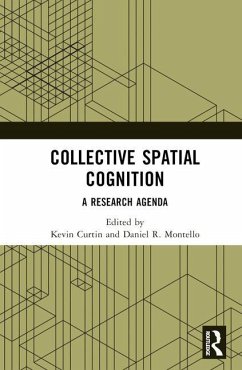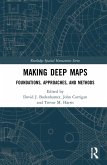This book integrates the science of spatial cognition and the science of team cognition to explore the social, psychological, and behavioral phenomenon of spatial cognition as it occurs in human collectives such as dyads and work teams.
It represents the culmination of a process of outlining and defining a growing field of research termed Collective Spatial Cognition. It engages contributions from an international and multi-disciplinary community of scholars, who have collaborated to provide a foundation for knowledge discovery regarding how groups of people of varying size acquire information and solve problems involving spatiality as a key component, leading to action that incorporates the spatial information and problem-solving collectively achieved. The collectives under study can be as small as dyads (teams of two) to large teams-of-teams who are working alongside each other to complete a mutual goal. The book lays the foundation for multi- and interdisciplinary work regarding Collective Spatial Cognition in the years to come, and this book documents that foundation.
This book will be of interest to those researching spatial, behavioural, cognitive, and information sciences in the fields of human geography, sociology, psychology, and computer science.
It represents the culmination of a process of outlining and defining a growing field of research termed Collective Spatial Cognition. It engages contributions from an international and multi-disciplinary community of scholars, who have collaborated to provide a foundation for knowledge discovery regarding how groups of people of varying size acquire information and solve problems involving spatiality as a key component, leading to action that incorporates the spatial information and problem-solving collectively achieved. The collectives under study can be as small as dyads (teams of two) to large teams-of-teams who are working alongside each other to complete a mutual goal. The book lays the foundation for multi- and interdisciplinary work regarding Collective Spatial Cognition in the years to come, and this book documents that foundation.
This book will be of interest to those researching spatial, behavioural, cognitive, and information sciences in the fields of human geography, sociology, psychology, and computer science.








